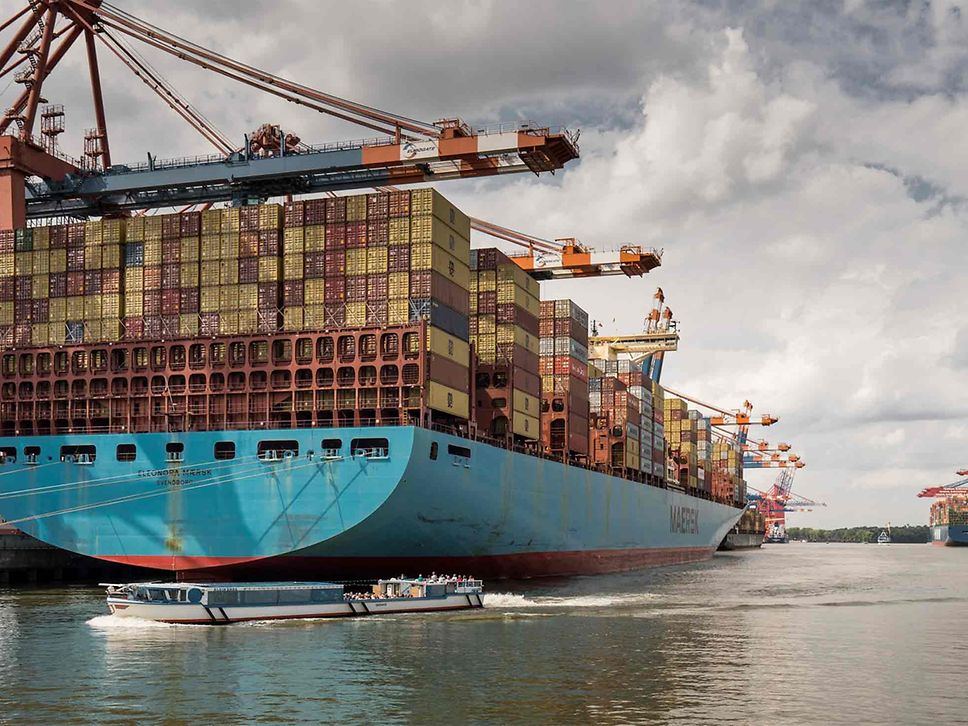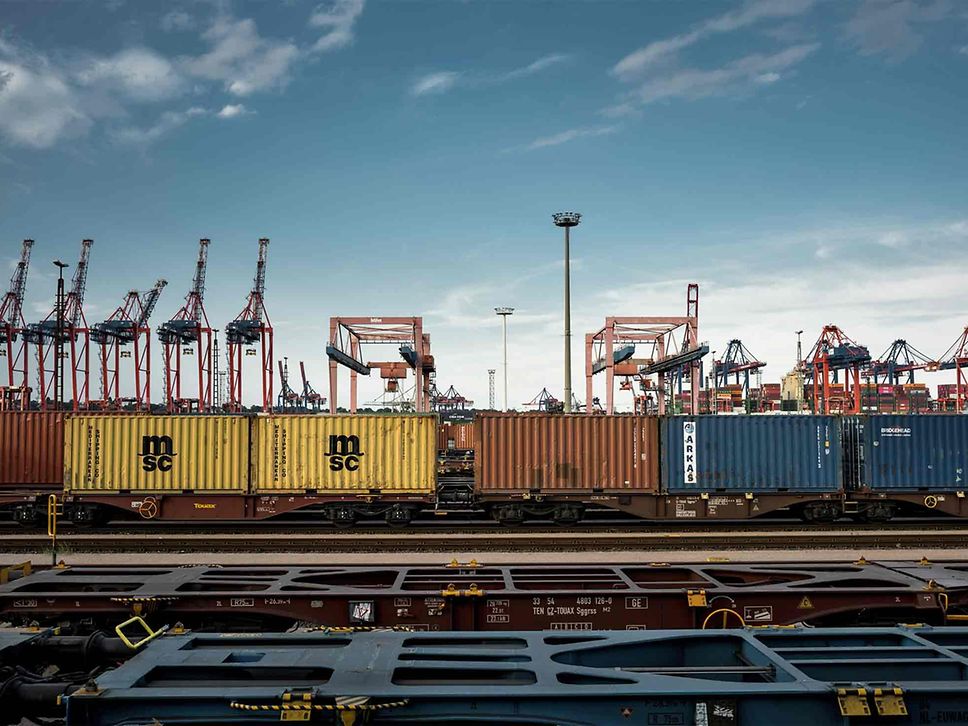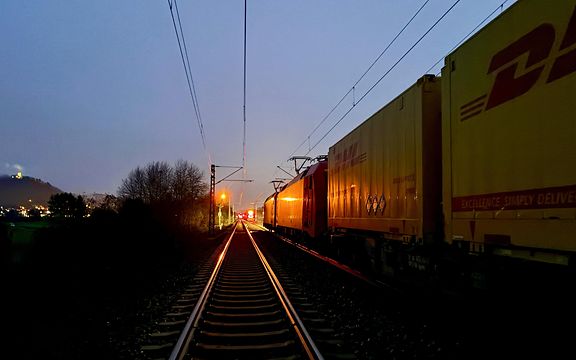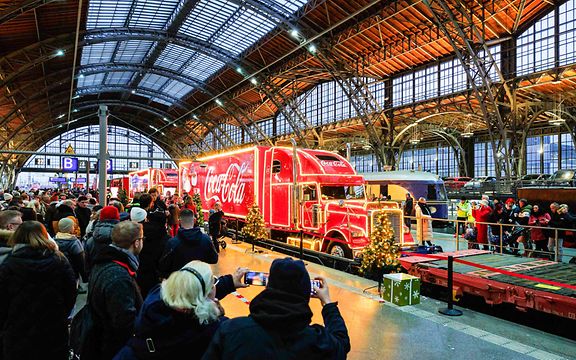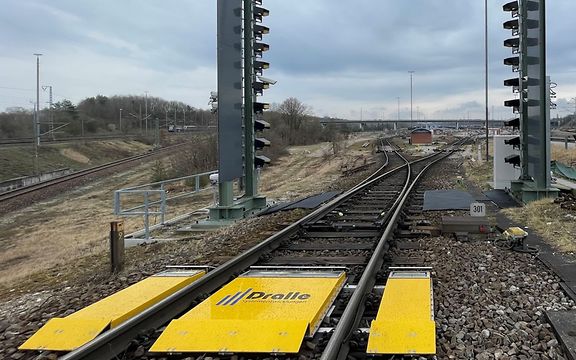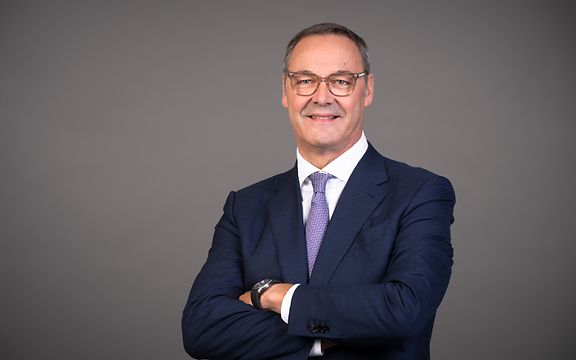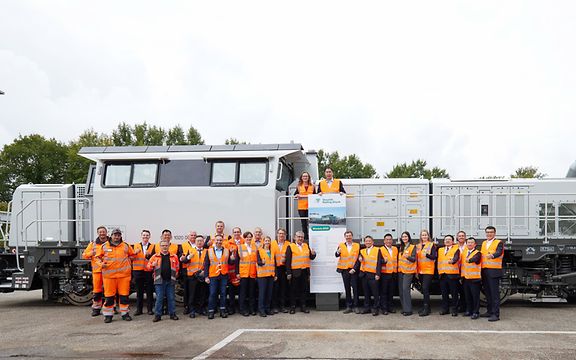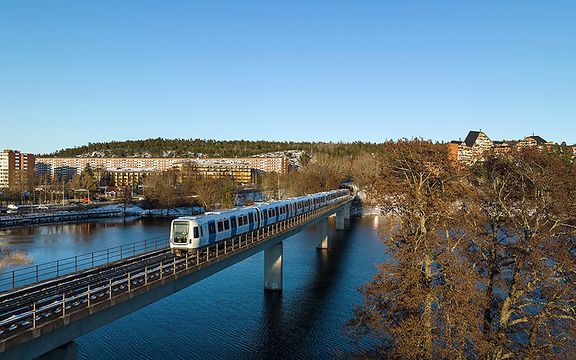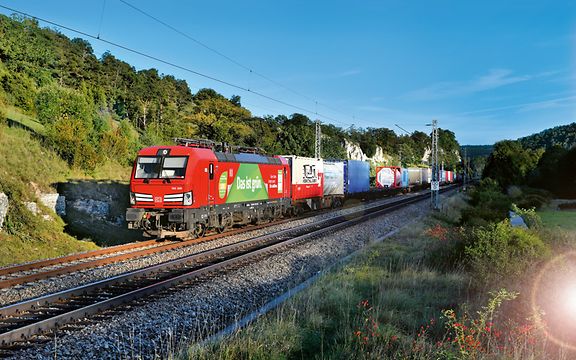Cities, countries, oceans #5: Hamburg at a click
Online sustainable: from the internet onto rail and ship.
Shaped by a long history, providing outstanding connections to the hinterland, huge yet always too small – that's the Port of Hamburg, the largest port in Germany and the third-largest in Europe. It's one of the twenty largest ports in the world in terms of transhipment volume for general purpose containers, precisely the kind of container whose transport DB Cargo subsidiary TFG Transfracht organises every day. Transfracht operates 270 trains a week, a third of them to the port in Hamburg, and from there all over the world. Then from the port back into the hinterland, which means all over Europe.
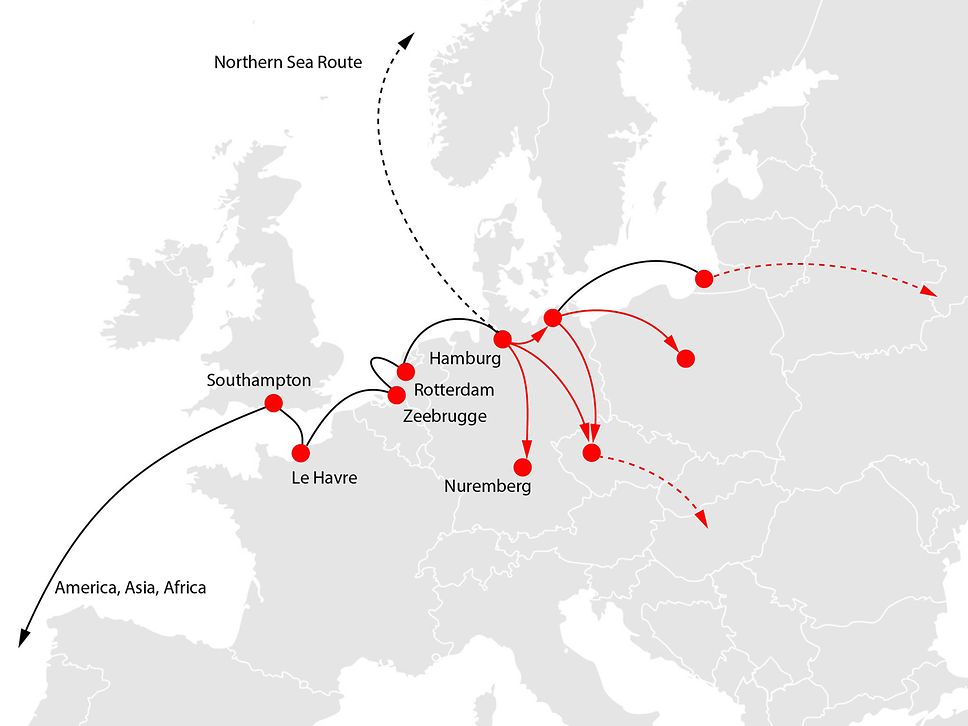
Everything is precisely choreographed. DB Cargo provides the freight trains and Transfracht acts as the operator; its task is to sell free capacity on the trains to shipping companies and freight forwarders. It sounds straightforward enough, but it's really quite complex. Getting every single wagon to the right place at the right time at maximum capacity is a logistical tour de force. Isn't there a smart, digital way to arrange this?
Logistics at the click of a mouse
Yes, there is. "Transporting a container should be as easy as sending an e-mail." That's the idea behind Forto, a Berlin-based company founded in 2016. Forto specialises in digital logistics solutions that enable capacity to be booked on a digital platform, door-to-door or door-to-port. With its fast and convenient platform, Forto handles 70% of the freight volume for German customers via the Port of Hamburg. "We came across each other in 2016," says Christian Klare, deputy head of Transfracht's north east region, about his company's first steps with Forto. "Back then, we at Transfracht were already the most 'digital' operator in our sector. And just like Forto, we were convinced that digitalisation had great potential. That brought us together and led to some shared ideas. Our goals were a very good match, so we launched a close partnership. Forto was and still is unusually modern and visionary for a logistics company. We share a lot of values." Those values include customer satisfaction, transparent transport chains and thorough process analysis. But above all, the two companies share the aspiration of making logistics much more sustainable than before. "The best way to do that in the intermodal sector is by rail. Transporting a container by train emits 80% less CO2 than by truck," notes Klare.
Sustainability as a logistical core competence
Neither company is satisfied with merely reducing CO2 emissions. Their goals are more ambitious: By default, anyone who books container transport to or from the port with Forto gets Transfracht's greenest product, TFGeco train – 100% carbon-free rail transport. "Many of our customers are happy to go this way," says Nina Göntgen-Voss, Director Sustainability at Forto. "We're in a time of change where price is no longer the only thing that matters. Sustainability is getting more and more important, but stable supply chains are also a major issue. At the latest, the big traffic jam in the Suez Canal and the pandemic made it clear that our logistics chains are very vulnerable."
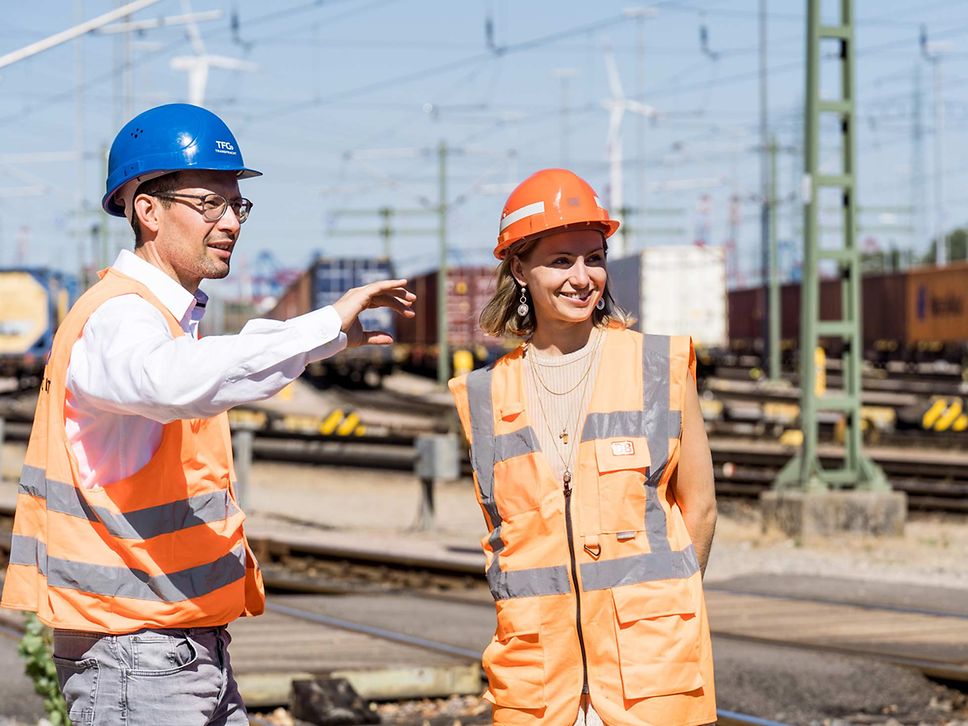
Analysing supply chains in their entirety to make them much more resilient and sustainable is the joint strategy being pursued by Forto and Transfracht. "This is a great partnership," says Göntgen-Voss. "We have some joint projects in the pipeline and we're both focused on sustainability. It's a good fit," adds Klare. Ahead of them is a vision of zero-emission transport on a global scale and across national borders. An ambitious goal, but someone has to take the first step.
Learn more about supply chains and why ports are bottlenecks
The world is on the move. More and more and bigger and bigger ships are transporting ever more goods all over the world. Ports are often a bottleneck. At the mouth of the River Elbe there are frequent traffic jams, especially with very large freighters whose draught is too deep to allow them to enter the river. Many ships therefore call at other deep-sea ports first, such as Zeebrugge, and unload as much cargo as possible there to reduce their weight. Only then can they enter the Port of Hamburg at high tide.
Hamburg's harbour is at a central location in the city, and this is where the advantages and disadvantages of a harbour that has evolved over time come together. "There's fantastic infrastructure here, with water taxis, barges, rail connections and depots close to the water. Hamburg is a top transhipment hub," says René Seltrecht, Head of Intermodal at Forto, noting the advantages of the Port of Hamburg. "But lately there have been delays during loading and unloading. Like other western ports, the Port of Hamburg has suffered from congestion and disrupted supply chains. So the recent investments in automation and digitalisation there are positive developments."
Container handling in the railway port
Today more than 70% of all part loads transported worldwide is packed in containers. As Germany's largest and Europe's third-largest container port, Hamburg plays an important role in distributing global flows of goods. Its four container terminals have an annual handling capacity of around 12 million TEU (20-foot general purpose containers). In addition, there are numerous multi-purpose terminals for container handling, megaship container bridges, and the highly automated Container Terminal Altenwerder (CTA). The CTA has the largest container rail terminal for combined transport in Europe. Every container terminal in the Port of Hamburg has an integrated rail terminal, making this the top railway port in Europe.
Get in touch with our expert.
TFG Transfracht GmbH
